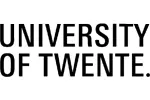

the Netherlands
University of Twente| The award | How you will study | Study duration | Course start | Domestic course fees | International course fees |
|---|---|---|---|---|---|
| MSc | Full-time | 18 months | September | find out | find out |
Master's programme
The 18-month master's in Geo-Information Science and Earth Observation is an internationally oriented programme and is taught entirely in English. You can start in September. Read more about the master's programme and admission. You can also find more information about career perspectives. Read the testimonial of students from Geo-Information Science and Earth Observation.
Change the world
Developing countries are often hit hardest by the global challenges we face today. In our programmes, we will equip you to take a multidisciplinary approach to problem solving in the context of international development, placing a strong emphasis on remote sensing and GIS.
The rise of remote sensing
Remote sensing is the collection and analysis of scientific data about phenomena at, above or below the earth's surface without coming into physical contact with them. There are many ways of collecting such data, for example by using conventional aerial photography, radar and airborne electronic scanning devices. Satellites have also gained a prominent position in this field. Remote sensing techniques and the images they produce are playing an increasingly important role in meeting many of mankind's complex and often disturbing challenges, such as climate change, population growth, food, water and energy security, health and land and housing needs.
Geographical information systems (GIS)
The potential of remote sensing is huge. And the huge quantities of data produced by these techniques pose yet another challenge. This is where the geographical information systems (GIS) come in. Central to every GIS is the database, which stores the data on which the eventual output depends. Designing software to apply these data to real-world problems is another part of the game. Software gives users access to the database and transforms and manipulates the data for such purposes as studying trend patterns, examining environmental issues and simulating the outcomes of project proposals or planning procedures. Throughout our programmes at ITC, we cover the full range of disciplines involved in this field. Studying at ITC will equip you to take your place in the field of international development.
Below are some suggested courses at other providers that you may also be interested in:
Digital International Relations & Diplomacy (UNITAR) Master Degree
EU Business School, Geneva
Find out moreConsider a pre-masters or postgraduate pathway program at University of Twente to prepare for your chosen course:
If you do not meet the entry requirements for this course then consider one of these postgraduate preparation courses from another institution:
Graduate Diploma of Engineering (Civil: Structural)
Engineering Institute of Technology
Find out moreThere are 85 other courses listed from University of Twente. A selection of these are displayed below:
Find out more about studying in the Netherlands